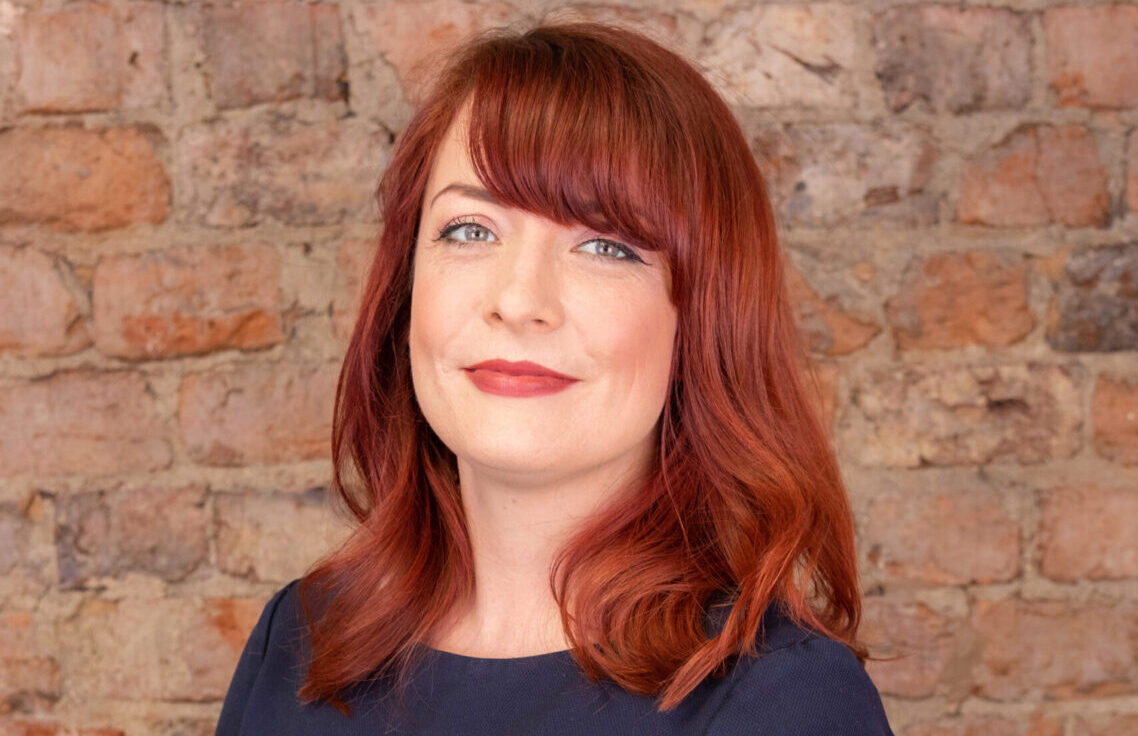
Our Children’s Director Sophie Clarke, shares her thoughts ‘what’s next’ following yesterday’s release of the Government’s new Children’s Social Care Strategy.

Sophie Clarke
Director of Childrens
It’s nearly a year since we welcomed Josh McAllister to Liverpool. A guest of Capacity, he spent time with leaders from Children’s Services across the city region, sharing and listening to views on his draft Independent Care Review. Yesterday I spent time reading and considering the Government’s response to both his findings and those of two other reviews.

As I clicked the link into the report, I was a little taken aback, but in a positive, ‘take notice’ kind of way. I had to double-check the use of one big word on that front page– a word we regularly use in our children and families work at Capacity, but one that’s been lacking in white papers and political positioning for far too long – love. Of the 50,812 words making up this paper, I believe this small four-letter word is the most important, but it’s one that theory and planning in our sector often shy away from. In its proposals, it focuses on six pillars and reassuringly my team are running significant public service redesign projects around three of them – that was a good start I must say. In its more detailed content, the paper does feel like those real voices heard during the reviews have been listened to, and there does seem to be a real desire for change (we’ll leave the budget point to one side for now). I feel pleased, at the heart of this long-awaited paper is a desire to address multiple deep-seated and knotty issues, issues that create an incredibly unstable system, and reinforce instability in thousands of children’s lives.
But back to that word, love, love is a verb, a doing word, it requires us to take deliberate action, herein lies the challenge, teams across the UK now need to take that ethos of action and get to the doing from this strategy. We can’t underestimate the massive step from a 220-word paper to transforming a system, but we know the leaders around us are up for it – in fact some of them are all already working with us on actually doing it.

At Capacity we’re doers, and like many of you reading this, we could have guessed what these areas of focus were several years ago. As an organisation we don’t have strategic objectives or key results, we just have why statements – first-person aspirations and things we’re working on to make the North West the best place to grow up, grow wise and grow old. Now, these Why statements are so hot off the press that I can’t share them all here. But I can give you a sneak peek of two:
- “My parents get the help they need, to look after me well” – We’ll help organisations to offer family support earlier, reducing cycles of problems,
- “I live in a real home where I feel loved and understood” – We’ll help make children’s social care higher quality and more purpose-led.
There is that word again, love – it’s great to know we and the policymakers agree on this. But to make this work we’ve got to not only look at the objectives in the report – these high-value aspirations – we’ve got to find effective, pacey and immediate ways to make them happen. We’ve got to hit the ground running and get on with the doing. It seems like a positive and helpful thing to share some of the practical things we’re doing across the North West. We don’t need to reinvent the wheel and we’re strong believers in sharing learning – what’s happening now, what’s working, what’s been a pain to get moving and how we’re unclogging it, and what we’ve had to challenge along the way to make sure we don’t revert to more traditional ways of doing things and truly keep families in the lead. Hopefully, this’ll give you some inspiration to kick off the ‘doing’ in your area.
Key theme: Family Help provides the right support at the right time so that children can thrive with their families.
For the last few years, we’ve been working in the Wirral to uncover what effective and family-led early help looks like. To understand what families want and need and how partners can work together, we listened to over 500 children and families in the area and heard messages like ‘never underestimate how frightened I am that you’ll take my child away”, “trust I know what my family needs” and “I want supportive relationships – not programmes, tickboxes or referral pathways”. Impactful stuff hey? We thought so too, so, with the direction and support of leaders across the public and third sector in Wirral, we imagined what we’d do if we ripped up what was there and started again.
Two years on, individuals and organisations in the area are working alongside families, the voluntary sector is leading this support under a brand totally separate from the Council and social care, backed up by a values set that encourages a helping hand and families to steer what they want to happen next. Digital tools are helping families find information and support, and they’ve not just been designed for parents, they’ve been designed with them: they’re interactive, colourful and feel different to what has gone before. Early signs show it’s working; more families are engaging with help, earlier, and fewer families are ending up in social care – which is exactly what good family help should do.
Key theme: Putting love, relationships and a stable home at the heart of being a child in care
Recognising the huge gap in the availability of local high-quality residential homes for children in the Liverpool City Region we’ve setup We are Juno CIC, a different approach for children who need residential care based on a not-for-profit model that’s had care experienced children leading its design from the outset. Funded in its first phase by the Local Authorities and backed up by grants from KPMG Foundation, The National Lottery and Segelman Trust, we know we’re not the only ones who think we’re onto something.
Children have told us to build teams of people with emotional intelligence, who are brave, and who aren’t afraid to love them. They don’t want bubbles built around them but the opportunity to build strong relationships that they can take into their futures, they want to be allowed to get stuff wrong and be surrounded by people who aren’t afraid to love them. Juno staff will be well paid, well trained and well supported because we know that it’s the people in care, and the culture within teams, that can have the biggest impact.
Key theme: A valued, supported and highly skilled social worker for every child who needs one
We know the best sort of social work comes from great relationships between people, and to have those we need staff teams that aren’t always changing. Families need social workers they can develop strong bonds with, who can earn their trust and who know them well enough to help them anticipate any challenges or opportunities in their near and distant futures. We can’t do this if we’ve got social work teams constantly changing. Some social workers we talked to told us that they aren’t happy with aspects of ‘in-house working’ – the culture, caseloads, disparity in pay or lack of flexibility they’re experiencing in Local Authorities, and we need to do something about it to improve recruitment and retention in Social Care.
We’re in the early stages of development, but we’ve done all the listening and now we’re working with Directors of Children’s Services from across the North West to look at the Social Worker retention, recruitment and agency usage challenge. We’re also in the early stages of setting up a not-for-profit ethical agency, that can address the immediate challenges and hope to follow it with a piece of work that addresses the key recruitment and retention barriers we picked up on above.

So, I’ll let you get back to your emails and meetings now, hopefully we’ve left you with a bit of Friday inspiration to take into next week. Much debate exists as to whether the £200m committed is enough, I’m no Public Sector economist but it sounds way below the mark.
However, that battle is one for the politicians and the lobbyists, for me and my team we have to continue with our purpose to make sense of the problem, listen to people, imagine what life could be like and do the doing to make that life a reality. As I highlighted earlier in this article, we truly welcome the Government’s view that love (and ultimately relationships) are at the heart of improving children’s lives for the long term, but there is considerably more needed to make this happen nationally. We must give permission and resource to local areas to work with young people and families to design and deliver the support they want and need. Here in Liverpool City Region, as we see across the country, great people and organisations are working day in, day out, with little resource, and they are starting to move the dial. But to truly change things and build new ways of working for the future, instead of taking money out the pot (our region is one of the worst affected by public sector cuts for 2023/24 onwards), brave leaders in our Children’s Sector need more putting in it, backed up by increased local freedom to allow creativity and a spark of a chance to imagine a fair and equal experience of growing up for every child across the North West.


